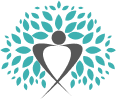High blood pressure, also known as hypertension, is regarded as the new silent killer. This is because it has no signs and symptoms but a considerable risk for stroke and heart diseases. Cardiovascular diseases are some of the leading causes of death globally, especially in the United States. According to statistics, about one in three American adults suffers from high blood pressure.
Understanding Blood Pressure
The blood pressure usually is measured using millimeters of mercury and abbreviated as mm Hg. There are two numbers used in the measurement, and they’re systolic and diastolic blood pressures. The systolic is the number on top that shows the pressure in the blood vessels when the heartbeats. Diastolic is the lower number indicating the blood vessels’ pressure when the heart is resting or between beats. The blood pressure depends on blood flow resistance in the arteries and the amount of blood that the heart is pumping. So, people with narrowed arteries will have higher blood pressure.
Normal blood pressure is lower than 120/80 mm Hg, while high blood pressure is higher than 130/80 mm Hg. If blood pressure is above normal but under the 130/80 mm Hg, that individual is at risk of developing high blood pressure.
Losing weight
Blood pressure increases as the weight increases. Being overweight also often leads to disrupted breathing when sleeping, increasing the risk of blood pressure. Weight loss is the most effective lifestyle changes to control blood pressure.
Eating a healthy diet
To help in blood pressure management, one should limit salt in the diet and increase the potassium amount. It is equally advisable that one eat foods lower in fat and plenty of whole grain, fruits, and vegetables. This eating plan is commonly referred to as the Dietary Approaches to Stop Hypertension (DASH) diet. While changing eating habits is not an easy task, the following tips will assist in adopting a healthy diet:
- Keeping a food diary
- Reduce salt intake
- Boost potassium intake
- Be a smart shopper
- Read food labels
Limiting alcohol intake
There is a lot of misconceptions when it comes to alcohol and health. By drinking in moderation, a drink daily for women and two for men, one can potentially lower blood pressure by around 4 mm Hg. However, these positive effects are lost when one drinks too much alcohol. Too much drinking can lead to increased blood pressure by some points. This can also reduce the effectiveness of the medication.
Quitting smoking
Every cigarette that one smokes raises the blood pressure for numerous minutes after finishing. Quitting smoking helps regulate blood pressure to normal. It also reduces the risk of heart diseases and improves overall health. It is common knowledge that people who do not smoke have a higher life expectancy than those who do.
Reducing Stress
Chronic stress has been observed to increase the chances of high blood pressure. Some people may also react to stress by choosing bad lifestyle habits such as eating unhealthy food, smoking, or excessive drinking. However, it is not easy to get rid of all your stressors. You can cope with them in some of these healthier ways:
- Changing your expectations
- Focusing on issues, you can handle and make plans to solve them
- Avoiding stress triggers
- Practicing gratitude
- Making time to relax and do activities that you love
Regular Exercises
Exercising regularly improves your physical activity and can reduce blood pressure by around 5-8 mm Hg if you have high blood pressure. It is, however, essential that you maintain consistency as stopping can raise your blood pressure again. You do not have to hit the gym to exercise, and you can take frequent walks, cycle, swimming, dancing, and jogging.
Monitoring your blood pressure at home and seeing the doctor regularly
It is vital to keep tabs on your blood pressure at home as blood monitors are accessible widely and without prescription. Always consult your doctor to guide you and help with your medication and other treatments if you’re making any changes. At the same time, it is also essential to get support from friends and family as this can significantly improve your health. You can also join a support group to boost your morale and emotions to help you cope with the condition better.
Who is at risk of high blood pressure?
Anyone can get high blood pressure, but several factors can increase the risk:
- Age: blood pressure rises with age
- Race/Ethnicity: HBP is more prevalent in African American adults
- Sex: Before the age of 55, men are more likely to develop high blood pressure than women. However, after 55, women are more likely than men to get high blood pressure.
- Weight: Obese or overweight people are more likely to develop it.
- Family history: a family history of HBP increases the risk of developing it
- Lifestyle: Some unhealthy lifestyle habits can increase the risk of HBP. These include lack of exercise, smoking, drinking excessively, overeating salt, etc.


